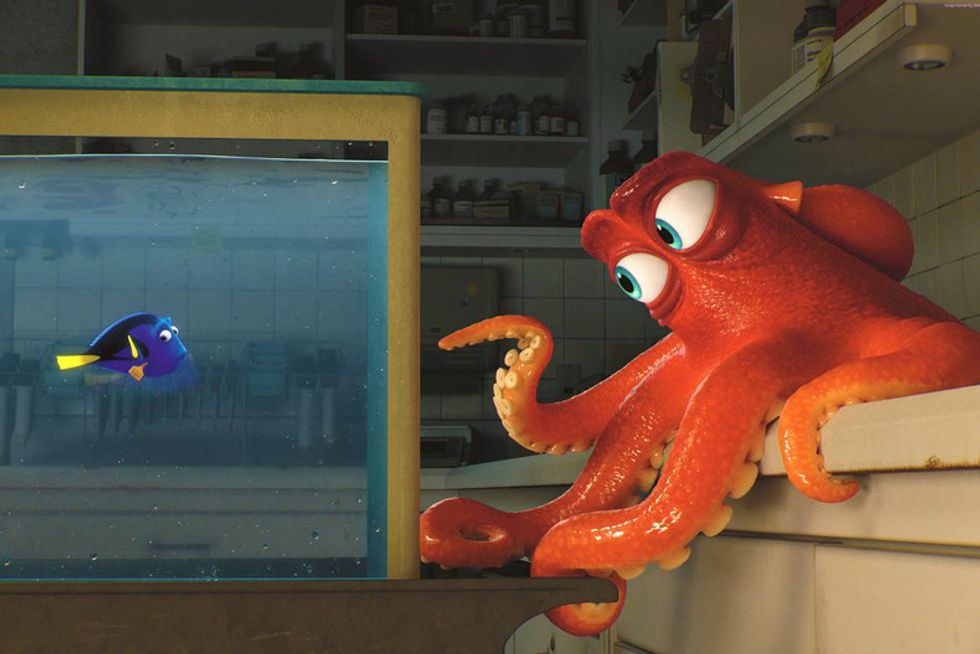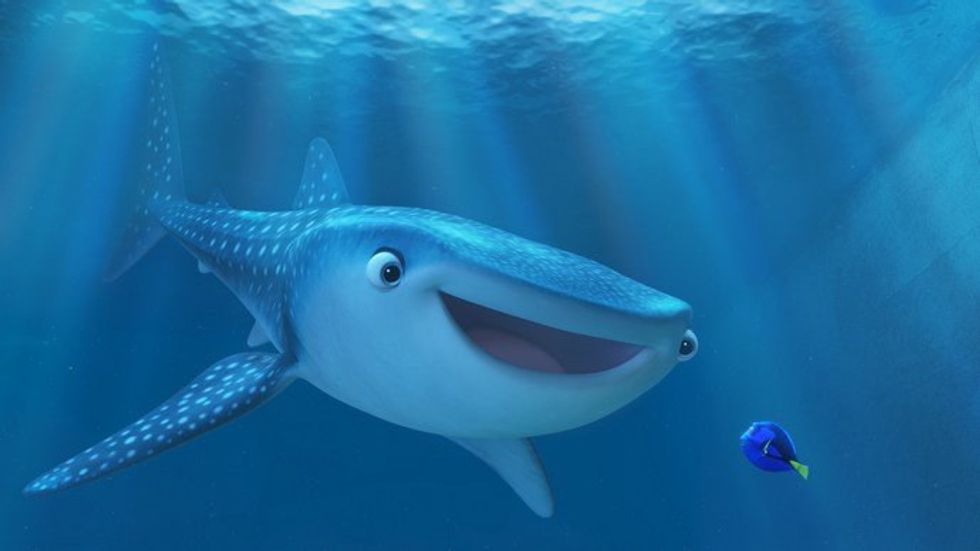Warning: minor spoilers ahead.
9:40 p.m.: The theater is filled with people. The lights dim, the familiar Disney castle logo flashes on screen, and then a tiny baby blue tang fish with huge magenta eyes appears on the movie screen and utters her first line with the sweetest, most adorably innocent voice: “Hi, my name is Dory, and I suffer from short-term memory loss."
Like many others who went to see the long-anticipated Pixar sequel to “Finding Nemo," I walked into the movie theater with full-fledged expectations to watch a funny, charming and lighthearted movie—a kid's animation film that would make me laugh, leave me in good spirits and maybe even make me feel a little nostalgic about my childhood years (our generation did grow up with Nemo for the past 13 years, after all).
But nearly two hours later, I walked out of the theater with something more than just warm, fuzzy feelings about America's favorite forgetful fish. I left with something deeper, something more intense and profound hidden beneath the undercurrents of what's mostly considered just another animated movie catering to children's entertainment: a meaningful, universal message regarding the complex issues of disability.
Of course, the subject of mental disability is prominent, even in the first film of the "Nemo" franchise. For the most part, Dory's issues of short-term memory loss serve as comic gold in "Finding Nemo," offering us the much-needed source of comic relief from a heart-wrenching storyline of a father's quest to find his lost son. But there's something definitively different about the way Dory's case of amnesia is treated in its sequel film: by spotlighting her condition as the pivotal centerpiece of the movie plot, Pixar allows the film to become a poignant and intense illustration of the complexity of mental disorders, transforming what was once a source of light-hearted comedy to a sensitively-handled disability—a disability that should no longer be dismissed as a cutesy punch line, it argues, but rather embraced with a certain kind of intellectual and emotional urgency.
Indeed, the film's focus on Dory's sudden recollection of her family—and her subsequent quest to reunite with them—allows the sequel to dive deeper into the depths of Dory's mental handicap to take a much closer look at her condition. As Dory gradually understands the profundity of what her disability has caused her to lose, she is forced to ride the powerful waves of loss, grief, and adversity—and we, as an audience, ride these waves right alongside her. But however much of a debilitating effect her disorder seems to have on her life—however many times she ends up lost or confused, alone or astray—never once does Dory lose her fearless determination or her fierce independence in the face of adversity, her ability to problem-solve in times of crisis or—perhaps her most important quality yet—her “just keep swimming" attitude towards any and every obstacle in life.
In this way, what “Finding Dory" does with remarkable subtlety and insightful mastery is to celebrate the greatness of a character who, in refusing to let her handicap define or disable her, forges ahead to succeed on her own terms. Dory moves from constantly apologizing for her condition, which she views as a debilitating hindrance at the onset of the film, to ultimately recognizing her value and her strengths, asking herself: “What would Dory do?" And Marlin's incessant frustration with the blue tang's forgetfulness is never portrayed as Dory's problem; instead, it's up to him to learn kindness and tolerance, to recognize that Dory's disability, though rendering her as someone that may need a little help sometimes, is precisely what makes her so extraordinary.
Perhaps one of the most interesting things about the movie's exploration of disability, however, is that Dory isn't the only character constantly navigating one. “Finding Dory" is filled with an entire spectrum of characters who won't let their differences and various handicaps get in the way of living their lives: Hank the octopus is missing a tentacle, Destiny the whale shark is extremely nearsighted, Bailey the beluga whale has trouble with his echolocation abilities—and of course, there's Nemo, with his weak, deformed fin. Yet all of these characters ultimately find a way to thrive in the face of their disabilities, discovering and utilizing their own set of special skills to help Dory find her way back home.
In the end, “Finding Dory" is about acceptance, about celebrating cognitive and physical differences—about finding the ability in disability. It argues, with heartwarming ingenuity and uplifting brilliance, that impairments and vulnerabilities can be turned into strengths, and that differences should be embraced as unique and extraordinary qualities that give strength and courage in the face of adversity.
And it's a message that's worth spreading all over the world—not just within the depths of the ocean.



















